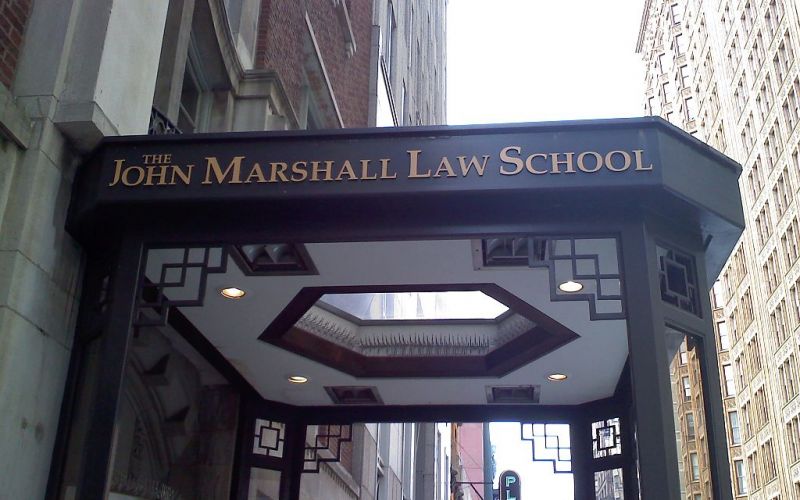When John Marshall Law School in Chicago merged with the University of Illinois at Chicago in 2019, it kept the John Marshall name. It was not a controversial move, given that Marshall is considered one of the greatest Supreme Court justices of all time and the law school had used the name since its founding in 1899.
Then came the killing of George Floyd and the movement that it spurred. Since then institutions have rethought whether they should carry the names of historic figures with stained backgrounds.
Marshall was a slave owner, but felt it was “against natural law” and opposed the slave trade. He was also opposed to large scale emancipation and instead supported sending slaves to Liberia.
The law school formed a task force to weigh in on the name of the school. By a six to one vote, it advised the university to drop Marshall’s name, noting “that despite Chief Justice Marshall’s legacy as one of the nation’s most significant U.S. Supreme Court justices, the newly discovered research regarding his role as a slave trader, slave owner of hundreds of slaves, pro-slavery jurisprudence, and racist views render him a highly inappropriate namesake for the Law School.”
The law school will now be called University of Illinois Chicago School of Law.
“The university has arrived at this new name following a thorough and carefully studied process that included input from all corners of the institution and beyond, considered issues of racial injustice and aimed to ensure that our university continues to be a place where diversity, inclusion and equal opportunity are supported and advanced,” said UIC Chancellor Michael Amiridis in a statement.
That still leaves two law schools named after Marshall: Atlanta’s John Marshall and Cleveland Marshall College of Law.
A spokesperson for Atlanta’s John Marshall said of the move: “Our Board of Directors is aware of UIC John Marshall’s decision and has no further comment at this time.”
Cleveland Marshall declined to comment. Earlier, it announced it was forming a law school name committee to look into the appropriateness of the name.
The school said at the time: “Removing “Marshall” from our law school’s name would be a very consequential decision by the College of Law and Cleveland State University that will require careful study and thoughtful consideration of different viewpoints from our entire law school and university community.”
It didn’t say when a decision was likely. The committee is operating and holding forums on the subject.
On its website, the school said: “These forums are not intended to directly deal with the question of whether we should change our name or to advocate for any particular viewpoint. Rather, the purpose is to better understand how historians view institutional name changes and how other institutions have approached similar issues. The forums will intentionally present differing views and opinions on this subject.”
On change.org, a petition is calling for all schools named after Marshall, which include the three law schools and 15 others, to change their names. It has been signed by 1,500 people.
The petition, initiated by Cleveland-based attorney Hanna Kassis, reads:
“We believe John Marshall’s true self – which ‘scholars’ denied us the history of knowing – is inconsistent with our ethos. Therefore, Marshall institutions need to rename. Whether they do or not is ultimately on them, but Marshall institutions need to honestly evaluate their role in perpetuating systemic racism, be it conscious or unconscious.”
However, some question the move. A Chicago Tribune editorial argued few from Marshall’s time could pass muster:
“But Marshall was hardly unique in his racial views or his participation in the system of human bondage. There is no purity test from our era he would survive; nor should we expect him to. George Washington, Thomas Jefferson, James Madison and even Alexander Hamilton owned slaves, and the Constitution provided for the indefinite preservation of the ‘peculiar institution.’ But those founders are rightly revered for achievements that loom larger than their failures.”


